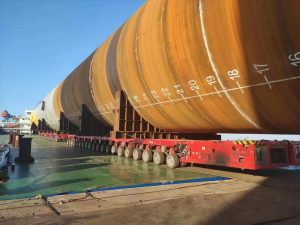The Transformative Impact of AI on Freight Forwarders: Revolutionizing the Industry
Introduction:
AI (Artificial Intelligence) has emerged as a transformative force in numerous industries, including the field of freight forwarding. As technology continues to advance, freight forwarders are embracing AI to increase efficiency, streamline operations, and enhance customer experiences. In this article, we explore the significant impact of AI on the freight forwarding industry and how it is revolutionizing traditional practices.
AI in freight forwarding
AI-powered automation is revolutionizing the way freight forwarders operate. With sophisticated algorithms and machine learning capabilities, AI systems can automate time-consuming manual tasks such as data entry, document processing, and shipment tracking. This not only frees up valuable time for freight forwarders but also reduces human errors, leading to improved overall efficiency and accuracy.
AI automation in freight forwarding
AI-enhanced predictive analytics is another valuable contribution to the freight forwarding industry. By analyzing vast amounts of historical shipping data, AI algorithms can identify patterns, optimize shipping routes, and predict potential disruptions. This empowers freight forwarders to proactively respond to challenges, make well-informed decisions, and ensure on-time deliveries, thereby enhancing customer satisfaction.
AI predictive analytics
Customer service is significantly enhanced through AI integration. AI-powered chatbots and virtual assistants allow freight forwarders to provide 24/7 automated support, answering customer queries, tracking shipments, and providing real-time updates. This instant accessibility and personalized assistance ensure a seamless customer experience, leading to increased customer loyalty and retention.
AI-powered customer service
AI-driven supply chain optimization is revolutionizing how freight forwarders manage inventory levels, warehouse operations, and transportation. By leveraging AI algorithms, freight forwarders can analyze multiple factors, such as demand patterns, supplier performance, and market trends, to optimize inventory management, reduce costs, and improve supply chain efficiency.
AI-driven supply chain optimization
Conclusion:
Incorporating AI into freight forwarding operations is a game-changer for the industry. By harnessing the power of automation, predictive analytics, customer service enhancements, and supply chain optimization, AI empowers freight forwarders to adapt to the evolving demands of a globalized world. Embracing AI technology not only improves efficiency and accuracy but also drives customer satisfaction, ultimately strengthening the position of freight forwarders in a highly competitive market.


